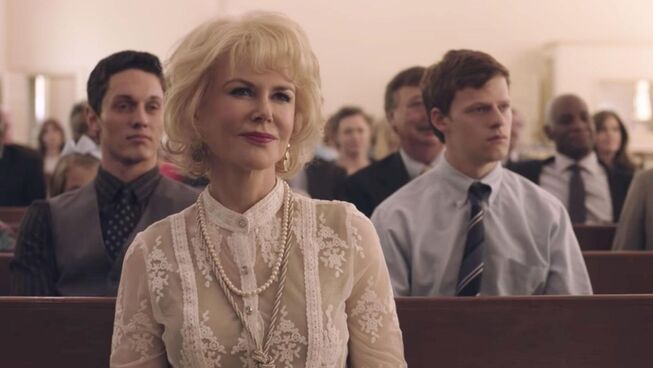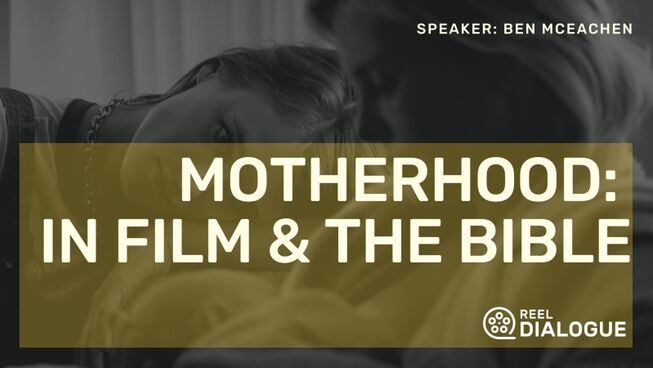Boy Erased - A commentary on the human condition and parenting

‘I don’t want to pretend anymore.’
Joel Edgerton is an Australian-born actor who has become a mainstay in Hollywood and has proven that he is a triple threat by going past his acting abilities and showing his skills as a writer and director. He has used all three gifts as an opportunity to focus on the darker sides of the human experience. His directorial debut addressed the impact of bullying in The Gift and now Edgerton tackles the memoirs of Garrard Conley, an author who experienced the abuses of gay conversion therapy in Boy Erased.
Edgerton’s talent and the performances of Lucas Hedges, Nicole Kidman, and Russell Crowe are to be commended, but this new venture by the director turns out to be one of the most unappealing films of 2019. Addressing the issues of sexual identity, abuse and acceptance is an all-pervasive aspect of our modern society and educating society is an essential aspect of this contemporary life, but this film fails to provide any hope for anyone involved in these issues.
Brief plot summary: Jarod Eamons (Hedges) grew up in a loving home of a Baptist pastor in Arkansas with his mother and father (Kidman and Crowe). Despite being a regular member of his local church and having a beautiful girlfriend, he wrestles with his own sexual identity. After leaving behind small-town life, he begins attending university and due to circumstances and the college atmosphere, he begins to explore his desires. When his lifestyle becomes apparent to his parents, they choose to enrol their son in a gay conversion therapy programme called the Refuge Program and Jarod willingly attends the course. A course that uses exclusivity, abuse and unscientific methods as a means of therapy which leads to a dramatic conclusion to Jarod’s stay at the facility.
Forgoing the usual review of the film, this will be a commentary on the topics addressed in Boy Erased by looking at four critical aspects of the human condition that should be discussed from the movie’s themes.
Criminal acts need to be addressed: Soon after arriving at university, Jarod is befriended by Henry, a young man who turns out to be a serial rapist. After a brief time ‘grooming’ his victim, he attacks Jarod and this act is graphically portrayed in the film. Despite the apparent subsequent remorse conveyed by the attacker and that the act causing embarrassment for the victim when he returns home, the fact this criminal is never held to account is a something that needs to be addressed in our modern society.
Rape is never acceptable and the lesson from this film is for parents to do all they can to involve themselves in their children’s lives, looking for signs and asking questions of children may be painful, but it is essential. Regardless of how it may affect the relationship with a child, law enforcement needs to be involved for the sake of your child and other potential victims.
Because of the failings of some, do not judge the whole: If there are villains in Boy Erased, it was the organisers of the gay conversion therapy programme. These men were working under the label of the Christian faith, but their misuse of the Bible is a stark contrast to the grace, mercy and love shown by Jesus in the Gospel accounts.
For those who watch this film, be careful to judge the Christian faith or Christians based on the failings of these men. The last thing that anyone who wears the label of Christian would say is that they are perfect. The marker of Christianity is the acknowledgement that we all fail, we all are damaged, but the real hope provided through the words of Jesus is the epitome of love and salvation. No one wants to be judged in this life and please do not judge the whole faith, because of the failings of a few.
Regardless of the label, all ‘medical’ practises need to be questioned: The behavioural modification programme that was portrayed in this film had no valid medical credentials and worked under the label of Christianity to encourage people to look past the shortcomings of the programme. The acts of physical, psychological and spiritual abuse portrayed were abhorrent, especially by doing these acts in the name of Jesus and the Bible.
The critical warning for parents and carers is to ask questions of methods of any activity that you are choosing to place your child. This film shows that it was a religious organisation that perpetrated these misguided methods, but this is not something that is exclusive to spiritual organisations. The label the organisation wears should not be the only thing to consider when looking for assistance of any kind with children. A key consideration is to look at the transparency of the organisation, sharing their methods and allowing patients to discuss the programme outside of the facility. If the organisation is not transparent, common sense would say to walk away.
Parents need to be active participants in their children’s lives: The role of mother and father is a challenge in any era and these modern times provide their unique opportunities. Boy Erased proves that parents need to be active participants in each season of their children’s lives. This involvement will vary as the years’ progress, but adult children still need input and care as they do when as babies, adolescents and teens.
Sons and daughters need different levels of love and wisdom from their parents. They may not always act as if they want it, but that does not mean that they do not crave and need the attention. For people of faith, prayer is a great place to start, but this cannot replace time spent with your child. Time in conversation, time over a meal, time taking them to activities, time is a critical gift to give your child. Food, a bed and education are good for them, but what children really need is involved parents who do more than care for their physical needs. Your child is an emotional and spiritual being, too. Involve yourself in every aspect of their lives. Be there for them when they fail and when they succeed.
Relish this fantastic gift, the privilege of being a parent.
Portions of the Bible that discuss parenting:
Psalm 127:3, Proverbs 22:6, Ephesians 6:4, Colossians 3:21






